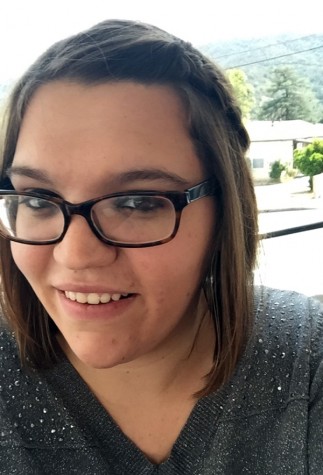Depression Does Not Deserve Social Stigma
I had my first experience with depression when I was 18, during my first semester in college.
After numerous events converged simultaneously, I couldn’t sleep and I was overeating. My roommates were awful and uninviting, and I felt painstakingly alone. I felt trapped in a pitch-black box, spending many nights crying to myself.
I was living on my own 900 miles away from home and I didn’t want to burden my mother with the news that I was failing at my attempt of independence, so I kept everything to myself and put on a brave face.
The following year, however, I found myself in the same place I was before. I was sad and alone, but afraid to share my failure with those who had put their faith into my college career. I was failing almost every class because I had no energy to keep up with the work load.
Instead of sharing my struggles, I kept it bottled inside for months. I isolated myself and refused to talk to anyone. After finding myself in the same exact situation, I made a foolish decision that got me kicked out of college.
It wasn’t until recently that I discovered I was strugglng with depression.
Last month, my doctor relayed the words no one ever anticipates hearing. I was diagnosed with severe depression on top of my existing anxiety, and prescribed three different antidepressants.
The diagnosis was followed by immense feelings of shame, embarrassment and lack of energy. I found myself afraid to open my mouth in class and unable to complete my assignments because there was no way my chemically imbalanced brain could possibly have the right answers. I was embarrassed and ashamed of my life, but then I began to question why.
Why do people have to make judgments about a person based on the diagnosis of depression? What shame is there in having cancer? Where is the embarrassment in tuberculosis? There isn’t any, so why should depression and anxiety be any different? Depression is often overlooked because it is a psychological illness, but it is real and it is painful.
Depression is not fixable with an attitude adjustment. It is so much more than a bad hair day. It is so much more than missing an important deadline. It is bigger than being blown off. It is more than discouragement. Depression is a restriction, a restriction so severe it affects daily life and the ability to function at full capacity.
I am so sick and tired of being told to ‘get over it’ or to ‘cheer up.’ I am tired of being called lazy and weak. I am not seeking out attention, and it is not something I can ‘snap out of.’ I have lost count of how many times people have told me it will pass, that better days will come. It is unfair to expect someone to “undo” depression by simply thinking happy thoughts.
The worst part of depression is the agonizing loneliness. I have isolated myself from those who care about me because I don’t feel like they understand what I am going through. I have been unable to tell people how I really feel, unable to express the anguish screaming inside my soul, because of the fear that feels so real. The culture we live in has created a cloud of stigma around mental illnesses, and it makes telling the truth so much more frightening.
It is possible to be grateful and be depressed. A mood disorder does not prevent gratitude. I am grateful for the life I was given, regardless of the current situation I am in. I am grateful for the people who have chosen to remain a part of my life.
The best thing a person can do for someone who suffers from depression is to believe them. Believe that they are suffering, believe that depression is real. Don’t question it, don’t offer advice, just believe them. It goes a long way.
One lesson I have taken away from my experience is that there is hope. Positive thinking does not and cannot cure depression, but it goes a long way. There will always be those who question depression, there will always be people who will never understand. But there will always be someone there. Whether it is a parent, a friend, or a counselor, there is someone. I have been lucky enough to find a confidant in my mother.
I don’t know how long I will have to face this inner demon. I cannot know, but I do know that I can and will beat it, and I will be stronger because of it.
Those who think they are undergoing depression but do not know how to deal with it should seek professional help without feeling ashamed. There is no shame in getting help.

Danielle Nail is a communications major with an emphasis in journalism. She fell in love with journalism during her freshman year of high school when she...
